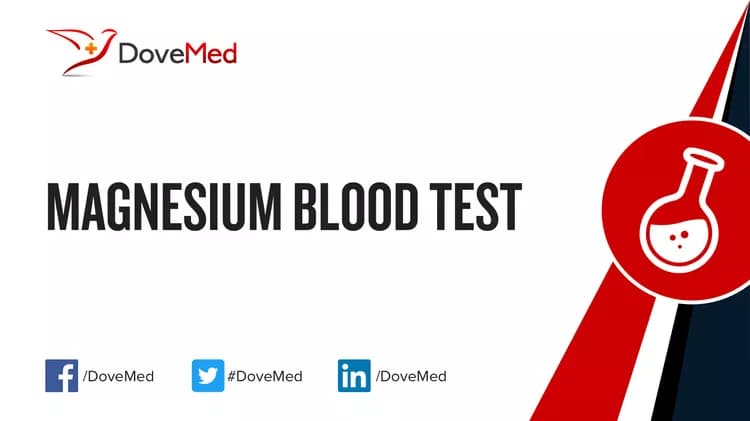What are the other Names for this Test? (Equivalent Terms)
- Mag Test
- Mg Test
- Serum Magnesium Test
What is Magnesium Blood Test? (Background Information)
- Magnesium is an element present in green leafy vegetables, nuts, and whole grains. It plays an important role in the body, in the functioning of nerves, muscles, including the heart, maintenance of bone strength, regulation of blood pressure, energy production, and helps with controlling blood sugar. Only a small percentage of the body’s magnesium is present in blood
- The Magnesium Blood Test measures this amount and is ordered, when the physician suspects irregularities in the magnesium level, or to investigate abnormalities, such as low calcium, potassium, uncontrolled diabetes or longstanding kidney disorders
What are the Clinical Indications for performing the Magnesium Blood Test?
Following are the clinical indications for performing a Magnesium Blood Test:
- Symptoms of low magnesium (hypomagnesemia), such as:
- Fatigue
- Nausea
- Muscle cramps
- Tingling sensation
- Irregular heart rate
- Confusion
- Seizures
- Symptoms of increased magnesium (hypermagnesemia), such as:
- Appetite loss
- Muscle weakness
- Irregular heartbeat
- Persistent low levels of calcium or potassium
- Evaluation of uncontrolled diabetes or kidney disorders
- Evaluation of individuals with malnutrition, malabsorption (dietary nutrients are not absorbed properly into the body), and those who are alcoholics
How is the Specimen Collected for Magnesium Blood Test?
Following is the specimen collection process for Magnesium Blood Test:
Sample required: Blood
Process: The blood sample is drawn through a needle inserted into the vein (arm).
Preparation required: Usually, no special preparation is needed prior to the test.
What is the Significance of the Magnesium Blood Test Result?
The normal values, called the reference range for magnesium, may vary slightly from lab to lab. Hence, most lab reports come with a reference range, which is used in that particular centre. A physician interprets the results based on the reference values provided.
A standard reference range in wide use is:
Reference range: 1.7-2.2 mg/dL (milligrams per deciliter)
Some conditions that cause decreased levels of magnesium include:
- Malnutrition
- Alcoholism
- Malabsorption disorders that affect absorption of magnesium in the intestines
- Chronic diarrhea
- Hypoparathyroidism (decreased functioning of the parathyroid glands)
- Long-term use of diuretics
Some conditions that cause increased levels of magnesium include:
- Hyperparathyroidism (increased functioning of parathyroid glands)
- Hypothyroidism (decreased functioning of thyroid gland)
- Kidney failure
- Dehydration
- Addison disease (less production of adrenal gland hormones)
- Diabetic acidosis
- Abuse of antacids that contain magnesium salts
The laboratory test results are NOT to be interpreted as results of a "stand-alone" test. The test results have to be interpreted after correlating with suitable clinical findings and additional supplemental tests/information. Your healthcare providers will explain the meaning of your tests results, based on the overall clinical scenario.
Additional and Relevant Useful Information:
- Certain drugs that may raise magnesium levels include aspirin, lithium, magnesium-containing antacids, and thyroid medication
- Certain drugs that may lower magnesium levels include insulin, diuretics, laxatives, digoxin, and phenytoin
Certain medications that you may be currently taking may influence the outcome of the test. Hence, it is important to inform your healthcare provider, the complete list of medications (including any herbal supplements) you are currently taking. This will help the healthcare provider interpret your test results more accurately and avoid unnecessary chances of a misdiagnosis.
Related Articles
Test Your Knowledge
Asked by users
Related Centers
Related Specialties
Related Physicians
Related Procedures
Related Resources
Join DoveHubs
and connect with fellow professionals


0 Comments
Please log in to post a comment.